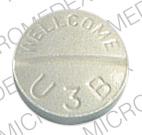Thioguanine Interactions
There are 544 drugs known to interact with thioguanine, along with 4 disease interactions, and 1 alcohol/food interaction. Of the total drug interactions, 55 are major, 476 are moderate, and 13 are minor.
- View all 544 medications that may interact with thioguanine
- View thioguanine alcohol/food interactions (1)
- View thioguanine disease interactions (4)
Most frequently checked interactions
View interaction reports for thioguanine and the medicines listed below.
- 5-HTP (5-hydroxytryptophan)
- Adrenalin Chloride (epinephrine)
- Armour Thyroid (thyroid desiccated)
- Aspirin Low Strength (aspirin)
- B Complex 100 (multivitamin)
- Bactrim (sulfamethoxazole / trimethoprim)
- Benadryl (diphenhydramine)
- Breo Ellipta (fluticasone / vilanterol)
- Calcium Oyster (calcium carbonate)
- Citrate of Magnesia (magnesium citrate)
- Co-trimoxazole (sulfamethoxazole / trimethoprim)
- Copper (copper gluconate)
- Cytoxan (cyclophosphamide)
- Demerol (meperidine)
- DHEA (dehydroepiandrosterone)
- Dilaudid (hydromorphone)
- DMSA (dimercaptosuccinic acid)
- Dulcolax Stool Softener (docusate)
- Eliquis (apixaban)
- Flector Patch (diclofenac topical)
- Guaifenex LA (guaifenesin)
- Heet Analgesic Liniment (methyl salicylate topical)
- Hiprex (methenamine)
- Implanon (etonogestrel)
- Inflectra (infliximab)
- L-Lysine (lysine)
- L-Methylfolate Formula (l-methylfolate)
- Lymphoseek (tilmanocept)
- Mirena (levonorgestrel)
- Nitrolingual Pumpspray (nitroglycerin)
Thioguanine alcohol/food interactions
There is 1 alcohol/food interaction with thioguanine.
Thioguanine disease interactions
There are 4 disease interactions with thioguanine which include:
More about thioguanine
- thioguanine consumer information
- Compare alternatives
- Drug images
- Latest FDA alerts (1)
- Side effects
- Dosage information
- During pregnancy
- Drug class: antimetabolites
- Breastfeeding
- En español
Related treatment guides
Drug Interaction Classification
| Highly clinically significant. Avoid combinations; the risk of the interaction outweighs the benefit. | |
| Moderately clinically significant. Usually avoid combinations; use it only under special circumstances. | |
| Minimally clinically significant. Minimize risk; assess risk and consider an alternative drug, take steps to circumvent the interaction risk and/or institute a monitoring plan. | |
| No interaction information available. |
See also:
Further information
Always consult your healthcare provider to ensure the information displayed on this page applies to your personal circumstances.


